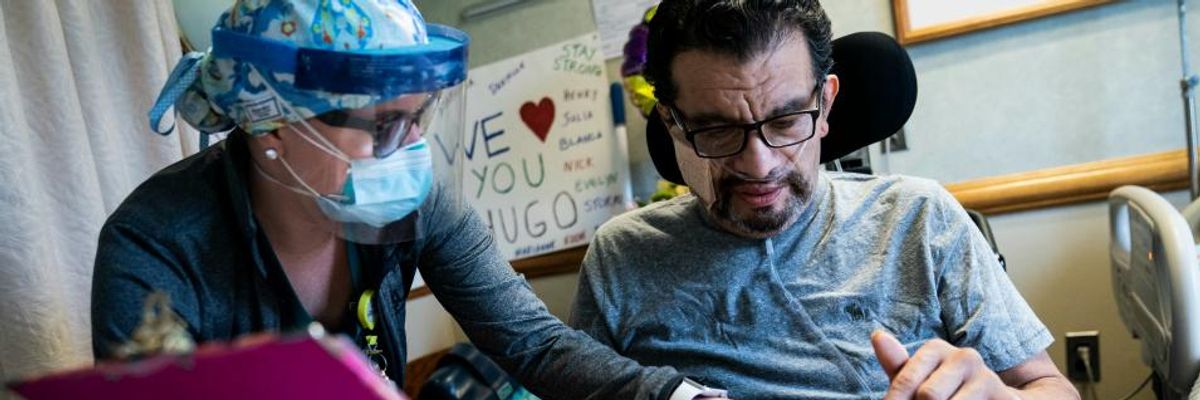An overwhelming majority of Americans are worried that the coronavirus crisis will drive up healthcare costs and nearly nine in 10 are concerned that "the pharmaceutical industry will take advantage of the current Covid-19 pandemic to increase drug prices," according to new Gallup and and West Health polling out Thursday.
"Concerns loom large that when the pandemic is all over, Big Pharma and insurance companies will revert to old patterns and behaviors and continue to squeeze Americans with ever-higher drug prices and insurance premiums."
--Tim Lash, West Health.
"Americans are clearly worried about the impact of the coronavirus pandemic well beyond being exposed to or spreading the disease," Gallup senior researcher Dan Witters said in a statement announcing the poll results.
Among the 1,016 U.S. adults surveyed in mid-May, 55% were "very" concerned Big Pharma will use the crisis to raise prices and 33% were "somewhat" concerned. The level of concern was consistent across most demographics except political affiliation, with Democrats more worried than Independents and Republicans.
However, U.S. adults across political parties largely agreed on another matter: 91% of Democrats, 87% of Independents, and 89% of Republicans said they believe that if an effective treatment for Covid-19 is approved by the Food and Drug Administration, "the federal government should be able to negotiate the price of the treatment with the drug manufacturer."
The survey also found that "79% are very or somewhat concerned about their health insurance premiums rising and 84% are very or somewhat concerned about the cost of care generally rising, with 41% very concerned about each." For both of those questions, Democrats were again the most worried respondents.
"Concerns loom large that when the pandemic is all over, Big Pharma and insurance companies will revert to old patterns and behaviors and continue to squeeze Americans with ever-higher drug prices and insurance premiums," said Tim Lash, chief strategy officer for the nonprofit West Health.
"If history is any guide, these concerns are well-founded, which is why promises to rein in prices are not enough," Lash added. "We need to retool our healthcare system and enact smart legislation now."
The poll shows that Americans are divided in terms of how well they feel the U.S. government has handled the pandemic relative to healthcare expenditures; Democrats and those with higher educations were less pleased with the response than Republicans and those with a high school education or less.
"When asked to rate the national response to Covid-19 relative to how much the U.S. spends on healthcare, 9% of respondents rate the U.S. response as excellent and another 14% as very good," Gallup explained. "In contrast, 34% rate the response as poor and 23% as fair."
The new polling results come as the U.S. has over 2,173,800 confirmed Covid-19 cases and more than 118,000 deaths. As CNNreported Wednesday, some states working to reopen and relax restrictions--such as Arizona, Florida, and Texas--are seeing record highs in their daily infection rates.
Overall, CNN found that 21 states are seeing a upward trend in new cases, 21 states are seeing a downward trend, and eight states are seeing steady numbers.
"A mix of early reopenings and disregard for personal safety measures have prompted researchers to increase their projections of Covid-19 deaths this summer," CNN noted. "One model cited by the White House now predicts 200,000 U.S. deaths from coronavirus by October 1."
In response to that model from the Institute for Health Metrics and Evaluation at the University of Washington, CNN chief medical correspondent Dr. Sanjay Gupta said, "Sadly, I think this 200,000 number may be a under prediction based on what we're starting to see in several states across the country."
